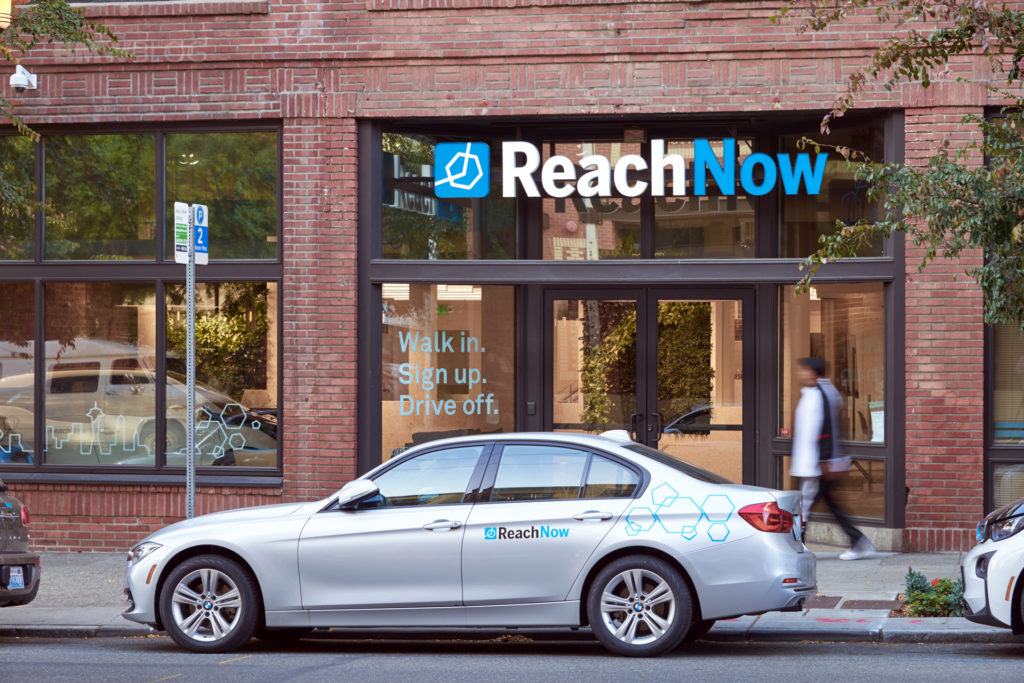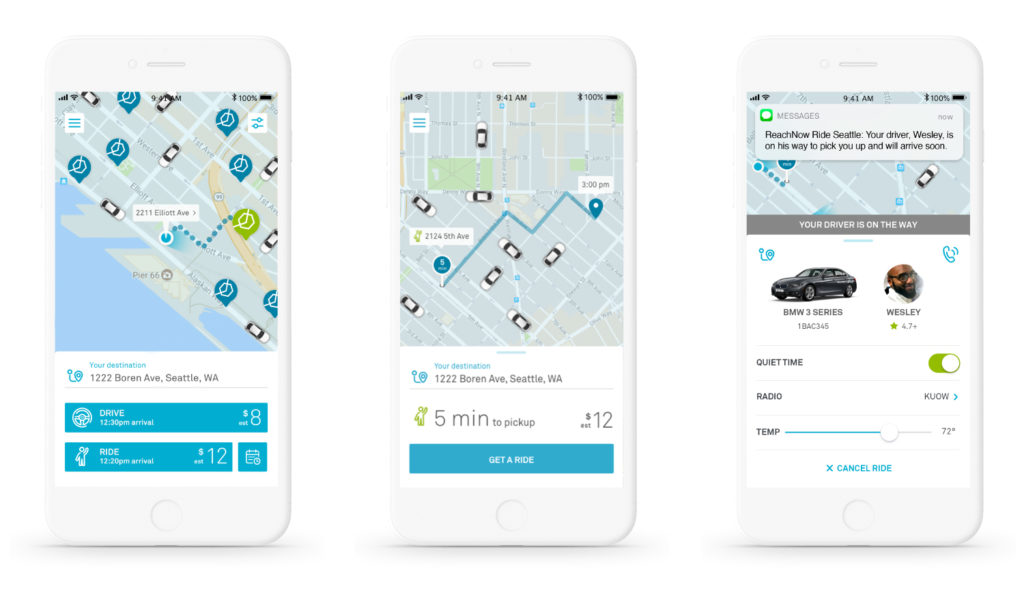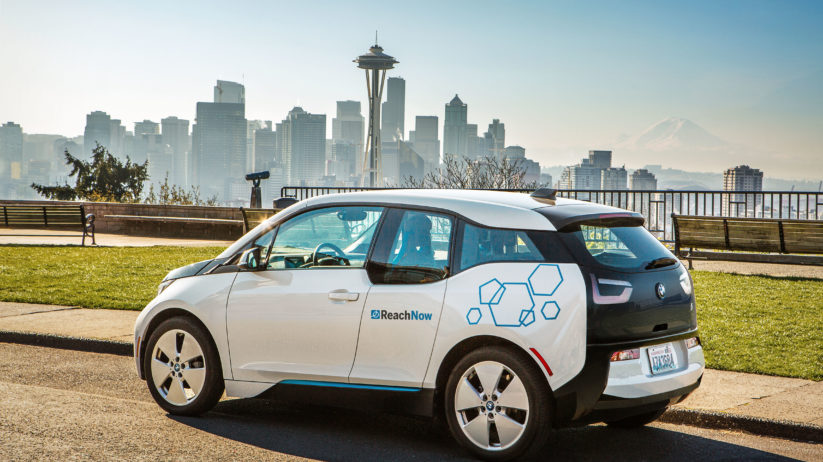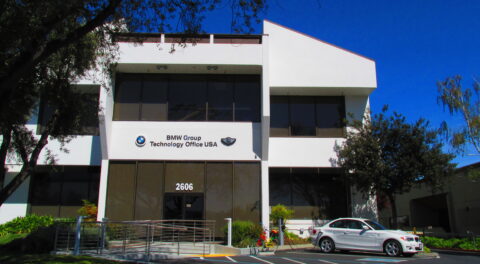BMW has made no secret of efforts to broaden its impact in the analogous sphere now referred to as mobility. For years, the company has made sizable investments in technologies and specialized firms with core competencies in areas that could prove to be game-changers in the future. Last week, BMW Group’s mobility services division became the first company to offer both car sharing and ride hailing within a single app via Seattle-based ReachNow.
Founded in 2016, ReachNow can be referred to as an American version of DriveNow, which is a car-sharing service operated and wholly owned by BMW with availability in a number of major European cities. ReachNow differs in that it in its most recent app update, users in the Seattle pilot market have the option of not only renting or sharing a BMW, but also requesting immediate or planned transpiration via a new ride-hailing feature.

If the new move sounds like a jab thrown in the direction of Uber or Lyft your assessment is correct, but ReachNow’s fleet of BMW vehicles are piloted by contracted professional chauffeurs and in addition to immediate availability, you can also plan to have a ride waiting for you in as little as 20 minutes, or up to a week in advance. Said to be marketed as an alternative to UberBLACK, the firm’s upscale offering, ReachNow’s ride hailing service actually seems to slot as a practical alternative just above cheaper solutions provided by Lyft and Uber, and as of this writing, the fleet consists of BMW F30 3 Series with xDrive and X1 SAVs. Members have the option of customizing their experience as well, and can dictate what’s being heard on the infotainment system, climate control, and whether or not they want the driver to engage in conversation or offer a quiet trip from point A to B, all from their smartphones.
On the car sharing and rental side of the venture, things are a bit more established. Operating in Seattle since 2016, ReachNow’s main competitors include Zipcar and car2go. The former of the two operates in Europe as well, but BMW’s competitor on that side of the Atlantic uses underlying technology by Sixt as opposed to ReachNow’s RideCell platform—rather than going to market for a tech platform solution for the ride-hailing side, it’s said that BMW wanted to own and understand the IP, data and analytics as opposed to forming a partnership. So far, a few subpar user experiences with the mobile app have been reported, but none of the now recognizable names like Lyft or Uber were spared from these kinds of early teething issues either. The rental fleet is substantially larger than the number of vehicles reserved for ride hailing use, and other models in addition to the Three and X1 include the i3 and offerings from MINI as well.

One of the largest advantages ReachNow currently promises via it’s new ride hailing forte is timely and efficient airport service. SeaTac serves a metropolitan area that spans from the Canadian border down to the state’s capital of Olympia and outlying communities even further south. What’s known as the Interstate 5 corridor has a reputation for traffic that’s only gotten worse over time, making far flung journeys to and from the airport a chore that sometimes results in missed flights. With more and more shared vehicles operated by individuals or paid drivers replacing the personal automobile, ReachNow is getting in on a piece of the action in a still-virgining industry. According to Dr. Simon Broesamle, Chief Customer Officer of ReachNow, predictions by the Center for Automotive Research indicate that by 2021, a single ride-sharing vehicle will replace up to 7.7 that would have otherwise been owned by private consumers in North America.
Remember what I said about those oblivious creatures merely seeking transportation being displaced from the left lane by autonomy and related developments? It’s right over the horizon, and BMW has planned accordingly. —Alex Tock
[Photos courtesy of BMW AG.]





















